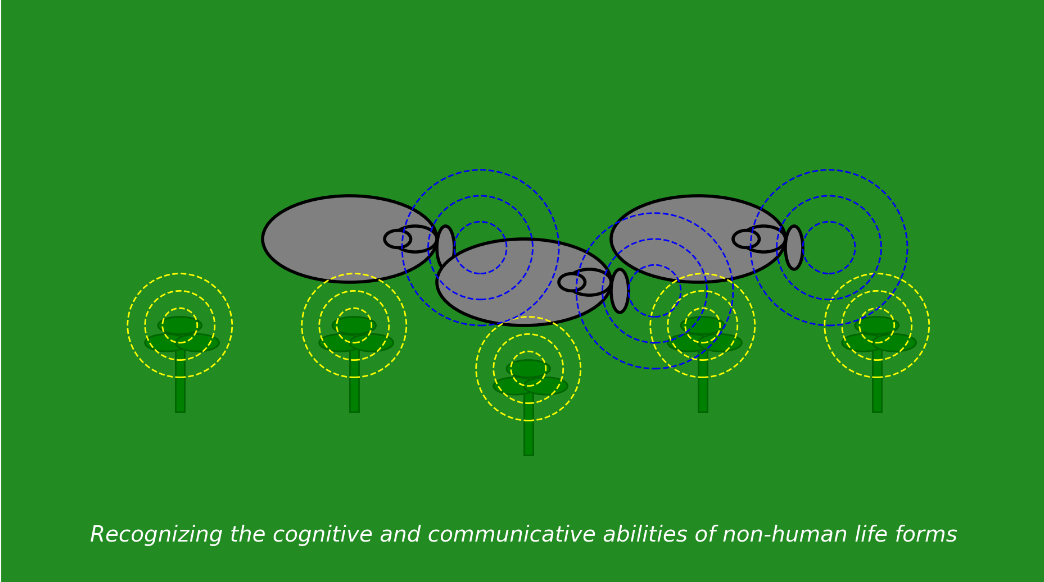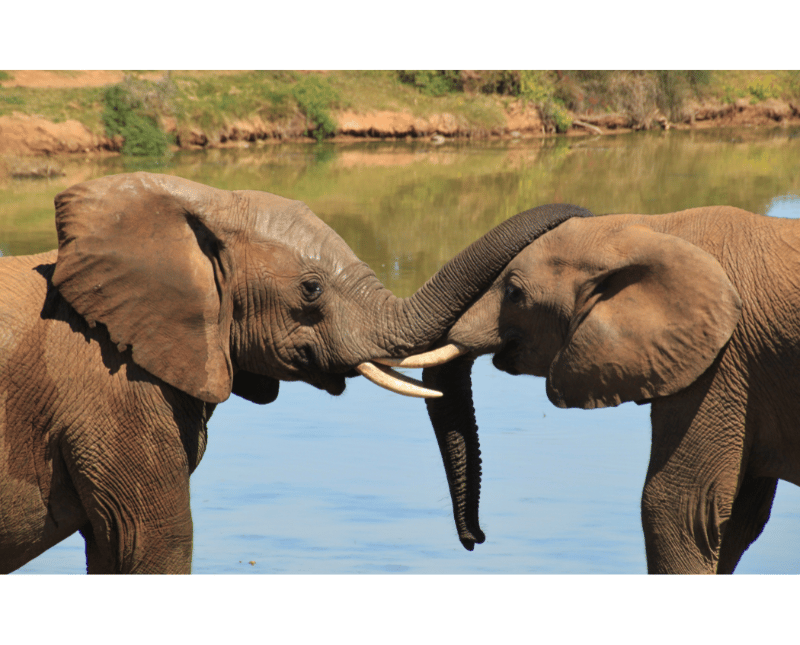Expanding Rights: Protecting Non-Human Entities' New Discoveries
THINKING BEYOND
6/20/20244 min read


PIC COURTESY: AI


Human rights have long been the bedrock of ethical and legal frameworks designed to protect individuals from harm and ensure their well-being. However, emerging scientific discoveries about the cognitive and communicative abilities of non-human entities such as elephants and plants challenge us to reconsider the scope of these rights. These findings highlight the complexity of animal and plant life, necessitating a broader, more inclusive approach to rights protection that extends beyond humans.
The Cognitive Sophistication of Elephants
Recent studies have revealed that elephants possess remarkable cognitive abilities, including the use of names to address each other. This discovery was made by researchers who analyzed elephant vocalizations and found that these animals use specific, individualized calls to communicate with each other, akin to how humans use names. The study, conducted by Pardo and his team, demonstrated that elephants have a sophisticated level of social organization and communication, previously underestimated by humans.
This ability to use names suggests that elephants have a complex understanding of identity and social relationships. Such cognitive sophistication implies a level of self-awareness and intentionality that parallels human communication. Recognizing these traits in elephants should prompt us to reconsider their moral and legal status. If elephants can engage in such intricate forms of communication, they likely experience a range of emotions and social bonds that warrant ethical consideration and protection.
The Ethical Implications of Plant Communication
Similarly, plants have shown unexpected capabilities that challenge our traditional views of life and intelligence. Research from Tel Aviv University has demonstrated that plants emit high-frequency sounds when stressed, a phenomenon described as "screaming." These ultrasonic sounds are inaudible to human ears but can be detected by other animals. This form of communication suggests that plants have a way of signaling distress, which could be crucial for their survival and interaction with their environment.
Understanding that plants can communicate distress changes our perception of their role in the ecosystem and their intrinsic value. This finding implies that plants are not merely passive organisms but active participants in their surroundings. Consequently, the ethical treatment of plants, especially in agricultural and environmental practices, needs reevaluation. Ensuring that plants are not subjected to undue stress or harm could become an integral part of sustainable and ethical environmental management.
Expanding the Concept of Rights
The discoveries about elephant and plant communication invite a profound expansion of the concept of rights. Traditionally, rights have been reserved for humans, based on characteristics like self-awareness, communication, and social bonds. However, the evidence that non-human entities also possess these traits suggests that rights should not be exclusively human. Instead, they should extend to any being capable of experiencing life in a meaningful way.
For elephants, this could mean recognizing their right to live in environments that allow them to express their natural behaviors, free from human-induced threats such as poaching and habitat destruction. Legal frameworks could be developed to protect their social structures and communication networks, ensuring that they can thrive both in the wild and in sanctuaries.
For plants, expanding rights might involve creating guidelines that minimize stress and harm in agricultural practices. This could include adopting more plant-friendly harvesting techniques and ensuring that ecosystems are maintained in ways that support plant health and communication. Recognizing the sentient-like qualities of plants could lead to more holistic approaches to environmental conservation and sustainability.
Who We Are:
The Economic Nations champions global unity through economic collaboration, focusing on sustainable growth, reducing inequalities, and enhancing global relationships for mutual prosperity and peace.
PIC COURTESY: CANVA
Challenges and Considerations
Expanding rights to non-human entities poses significant challenges. It requires a fundamental shift in our legal and ethical systems, which are deeply anthropocentric. There is also the practical difficulty of determining the exact nature and extent of these rights. For example, while it is relatively straightforward to advocate for the protection of elephants’ social bonds and habitats, defining appropriate protections for plants’ communication systems is more complex.
Moreover, this shift demands a change in public perception and values. People need to appreciate the intrinsic worth of non-human life forms and understand the scientific basis for extending rights to them. Education and awareness campaigns will be crucial in fostering this change, helping society to embrace a more inclusive ethical framework that respects the interconnectedness of all life forms.
Towards a More Inclusive Future
The findings about elephant and plant communication underscore the need for a more inclusive approach to rights protection. By acknowledging the cognitive and communicative abilities of non-human entities, we can develop ethical and legal systems that respect and protect their intrinsic value. This expansion of rights is not merely a theoretical exercise but a necessary step towards ensuring the well-being of all life forms on Earth.
In conclusion, the protection of human rights for those who are different from humans involves a paradigm shift in our understanding of intelligence, communication, and social bonds. By embracing this broader perspective, we can create a world where the rights of all sentient beings are recognized and safeguarded, promoting a more harmonious and sustainable coexistence.
Contacts
enquiry@economicnations.org
(xx) 98-11-937-xxx (On verification)
